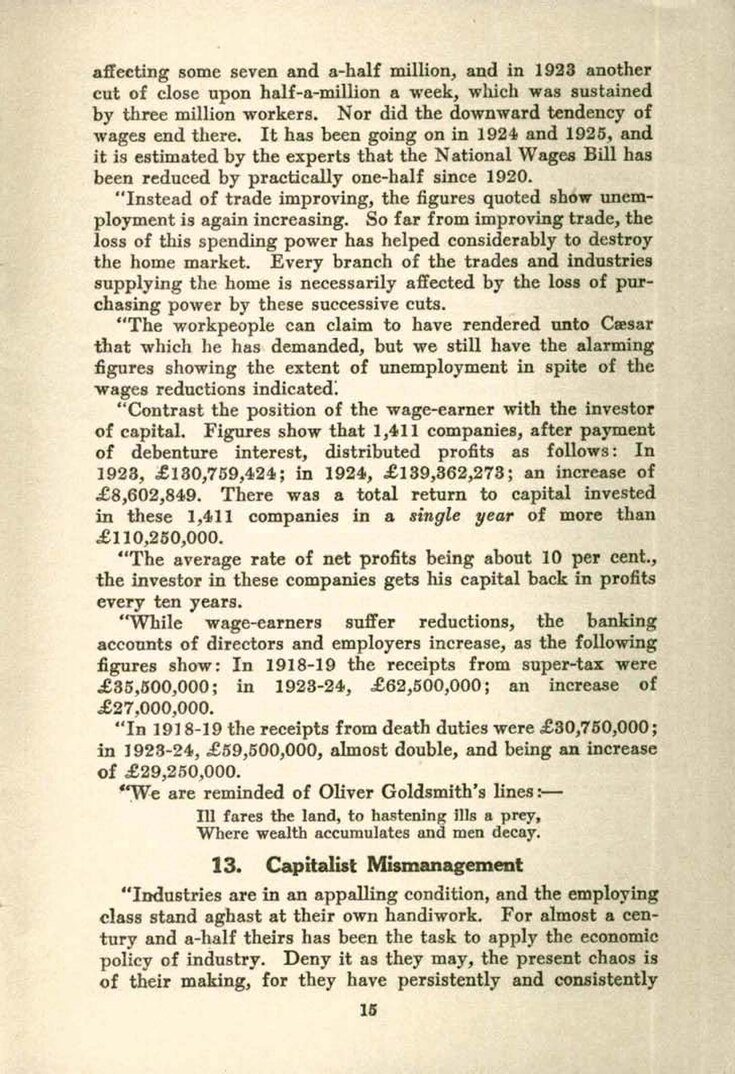affecting some seven and a-half million, and in 1923 another cut of close upon half-a-million a week, which was sustained by three million workers. Nor did the downward tendency of wages end there. It has been going on in 1924 and 1925, and it is estimated by the experts that the National Wages Bill has been reduced by practically one-half since 1920.
"Instead of trade improving, the figures quoted show unemployment is again increasing. So far from improving trade, the loss of this spending power has helped considerably to destroy the home market. Every branch of the trades and industries supplying the home is necessarily affected by the loss of purchasing power by these successive cuts.
"The workpeople can claim to have rendered unto Cæsar that which he has demanded, but we still have the alarming figures showing the extent of unemployment in spite of the wages reductions indicated.
"Contrast the position of the wage-earner with the investor of capital. Figures show that 1,411 companies, after payment of debenture interest, distributed profits as follows: In 1928, £130,759,424; in 1924, £139,362,273; an increase of £8,602,849. There was a total return to capital invested in these 1,411 companies in a single year of more than £110,250,000.
"The average rate of net profits being about 10 per cent., the investor in these companies gets his capital back in profits every ten years.
"While wage-earners suffer reductions, the banking accounts of directors and employers increase, as the following figures show: In 1918–19 the receipts from super-tax were £35,500,000; in 1923–24, £62,500,000; an increase of £27,000,000.
"In 1918–19 the receipts from death duties were £30,750,000; in 1923–24, £59,500,000, almost double, and being an increase of £29,250,000.
"We are reminded of Oliver Goldsmith's lines:—
Ill fares the land, to hastening ills a prey,
Where wealth accumulates and men decay.
13. Capitalist Mismanagement
15
